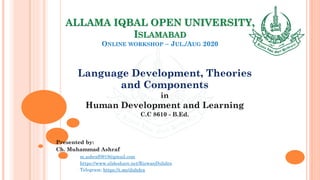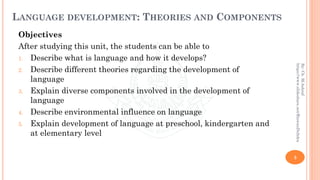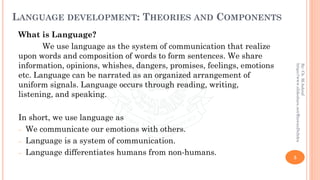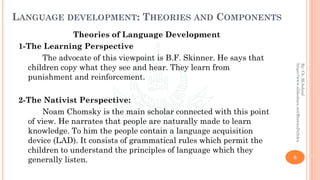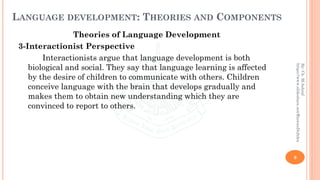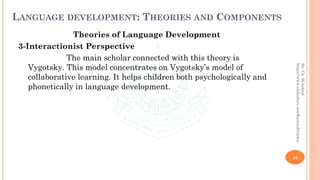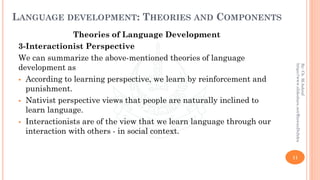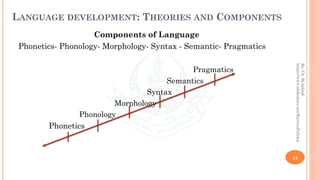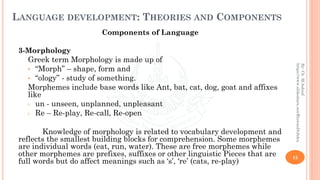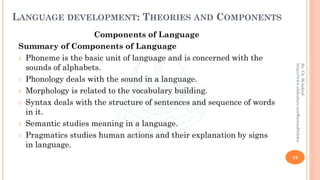The document presents an online workshop on language development, discussing its theories, components, and environmental influences on language acquisition. Key theories include the learning, nativist, and interactionist perspectives, highlighting the roles of imitation, innate knowledge, and social interaction in language development. Additionally, it outlines the stages of language development from infancy through elementary education, emphasizing the impact of environment and activities that support language learning.
